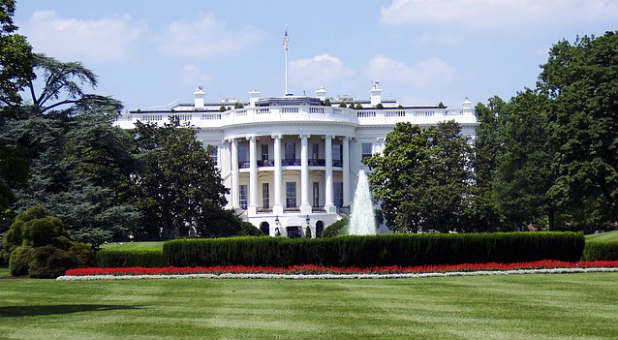
Faith and politics have a complicated relationship in the United States.
Many Americans want religious leaders to be clear about their values and how those values impact every aspect of life, including politics. And they want churches to be free to practice their faith, which includes discussing politics, without any government intervention.
But few want their preacher's advice on which candidate to vote for.
All three come into play when thinking about the Johnson Amendment, a 1954 law that bans certain nonprofits—including churches—from taking part in campaigns. This includes a ban on endorsing candidates.
A new executive order signed by the president aims to ease this restriction. Yet survey research suggests that response to the order may be mixed.
A recent LifeWay Research survey found a majority of Americans oppose penalizing churches with a loss of their tax exemption if they endorse a candidate. And nearly 8 in 10 Protestant senior pastors do not want the government regulating sermons and punishing churches for political content in their sermons.
Still, research consistently shows most Americans do not want pastors to endorse candidates in a church service. This includes evangelicals, as only 25 percent say pulpit endorsements are appropriate.
In other words, most Americans don't want pastors to endorse candidates. Yet they don't want the government to punish churches if a pastor crosses that line.
There is a difference between believing something isn't prudent and saying it should be illegal. The Johnson Amendment set a penalty for political activity by churches that appears out of line with what Americans believe is appropriate.
Despite today's executive order, however, it's unlikely many pastors will begin endorsing candidates.
In 2012, LifeWay Research found only 10 percent of Protestant pastors agreed that pastors should endorse candidates for public office from the pulpit. In 2016, we found that only 1 percent of Protestant pastors said they had endorsed a candidate during a church service.
The rallying point for Christian churches is a common faith in Jesus Christ—not politics. That unchanging faith leaves room for differing opinions on how society's problems, challenges and opportunities are addressed. ![]()
This article originally appeared at lifeway.com.
Get Spirit-filled content delivered right to your inbox! Click here to subscribe to our newsletter.
Dr. Steve Greene is now sharing stories, teachings, and conversations with guests who lead with love on Love Leads, a new podcast. Listen now.
Dr. Mark Rutland's
National Institute of Christian Leadership (NICL)
The NICL is one of the top leadership training programs in the U.S. taught by Dr. Mark Rutland. If you're the type of leader that likes to have total control over every aspect of your ministry and your future success, the NICL is right for you!
FREE NICL MINI-COURSE - Enroll for 3-hours of training from Dr. Rutland's full leadership course. Experience the NICL and decide if this training is right for you and your team.
Do you feel stuck? Do you feel like you’re not growing? Do you need help from an expert in leadership? There is no other leadership training like the NICL. Gain the leadership skills and confidence you need to lead your church, business or ministry. Get ready to accomplish all of your God-given dreams. CLICK HERE for NICL training dates and details.The NICL Online is an option for any leader with time or schedule constraints. It's also for leaders who want to expedite their training to receive advanced standing for Master Level credit hours. Work through Dr. Rutland's full training from the comfort of your home or ministry at your pace. Learn more about NICL Online. Learn more about NICL Online.


